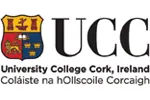

Ireland
University College Cork (UCC)| The award | How you will study | Study duration | Course start | Domestic course fees | International course fees |
|---|---|---|---|---|---|
| BSc (Hons) | Full-time | 4 years | September | EU 3000 | EUR 3000 |
Overview
BSc Chemistry of Pharmaceutical Compounds (CPC) is an interdisciplinary course focusing on the chemistry and biology of the pharmaceutical industry and includes a five-month industrial placement.
The course is an excellent pathway to careers in the pharmaceutical industry and is accredited by the Institute of Chemistry of Ireland and the Royal Society of Chemistry.
Industry experts lecture on pharmaceutical technology, regulatory issues and the industry in Ireland.Our placement scheme includes application and interview training. Interviews with companies will be organised.
Core subjects include organic, analytical and pharmaceutical chemistry, biochemistry, pharmacology and toxicology, supported by modules on physical and inorganic chemistry, physiology, mathematics and physics.
Final-year research projects are written on pharmaceutical chemistry and pharmaceutical bio-science.
Course Details
On completion of this course, you will be able to:
Year 1 Modules:
Core
BL1002Cell, Biomolecules, Genetics and Evolution (5 credits);
BC1001Introduction to Biochemistry and the Biological Basis of Disease (5 credits);
BL1004Physiology and Structure of Plants and Animals (5 credits);
MB1003Microbiology in Society (5 credits);
CM1200Fundamentals of Modern Chemistry 1 (10 credits);
MA1001 & MA1002Calculus for Science I & II (5 credits each);
PY1010Physics for Biological and Chemical Sciences (10 credits)
Electives
BL1005Introduction to Ecology (5 credits);
BT1001Biotechnology (5 credits);
CM1201Fundamentals of Modern Chemistry 2a (10 credits)
Year 2 Modules:
Biomolecules; Principles of Metabolic Pathways ; Main Group and Transition Element Chemistry; Fundamentals of Organic Chemistry; Energetics and Kinetics; States of Matter;
Structures and Reactions of Main Group Compounds; Aromatics, Carbonyls and Alkenes; Spectroscopy; Structure, Bonding and Quantum Mechanics; Introductory Molecular Biology;
Physiology
Year 3 Modules:
Structural Biochemistry; Molecular Biology; Synthesis, Structure and Reactivity of Organic Compounds; Analytical Chemistry; Natural Products and Reaction Mechanisms; Pharmaceutical Chemistry; Pharmaceutical Solids and Technology; Pharmacology; Toxicology; Chemotherapy and Pharmacology of Inflammation
In addition, you will undertake an industrial placement between Years 3 and 4 over the five-month period June-October.
Year 4 Modules:
Core
Protein Science; Advanced Organic Synthesis, Biosynthesis and Reactivity; Physical Organic Chemistry; Advanced Pharmaceutical Chemistry; Pharmaceutical Chemistry Drug Design and Development; Work Placement; Neuropharmacology; Applied Pharmacology & Toxicology
Electives
Range of Research Projects
See the College Calendar for further information on the Programme and the Book of Modulesfor further details on module content.
Fact File
Course Code: CK402
Course Title: Chemistry of Pharmaceutical Compounds
College: Science, Engineering and Food Science
Duration: 4 years
Teaching Mode: Full-time
Qualifications: BSc (Hons)
NFQ Level: Level 8
Costs: Full-time EU/EEA/Swiss State undergraduate students may be exempt from paying tuition fees. The State will pay the tuition fees for students who satisfy the Free Fees Criteria. In 2016/17 the Student Contribution Charge will be EUR 3,000 and the Capitation Fee will be EUR 165.
2017 Entry Requirements: Refer to CK402
Entry Points: CK402: 480 in 2016. Points may vary each year.
Course Practicalities
Expected lecture hours:Lectures usually take place in the mornings between 9am and 1pm.You will usually have between 8-12 lectures per week.
Expected lab/practical hours:Laboratory practical classes are generally in the afternoons between 2pm and 6pm. You will usually have three laboratory classes per week.
Assessment
Written exams will take place before Christmas and in May. Not all modules will have formal Examinations. Many modules use other types of assessment including laboratory practical reports, written assignments, interactive small-group tutorials, and by poster and oral presentations.
Application Procedure
Refer toCK402.
2017 Entry Requirements: Refer to CK402
Entry Points: CK402: 480 in 2016. Points may vary each year.
Contact University College Cork (UCC) to find course entry requirements.
Below are some suggested courses at other providers that you may also be interested in:
Professional LLM in Canadian Common Law LLM
Osgoode Professional Development, York University
Find out moreLeader Communication in a Cross Cultural & Changing World Short Course
ESSCA School of Management – Online Programs
Find out moreIf you do not meet the entry requirements for this course then consider one of these courses from another institution:
There are 338 other courses listed from University College Cork (UCC). A selection of these are displayed below:
Join the StudyLink email list and never miss a chance to turn your study abroad dreams into reality!

Find out more about studying in Ireland